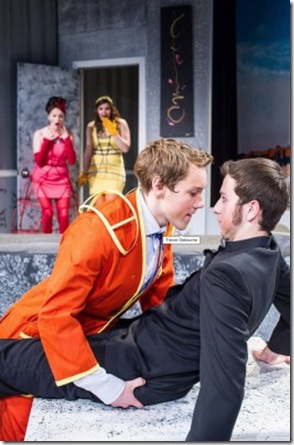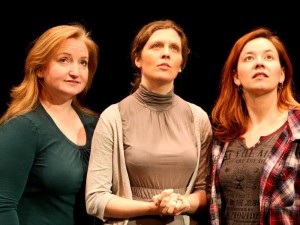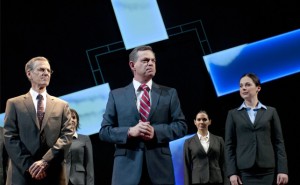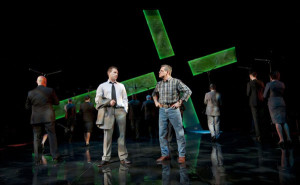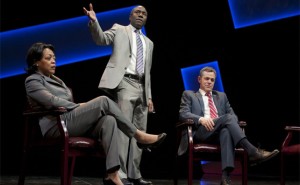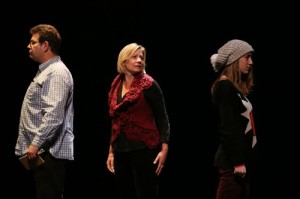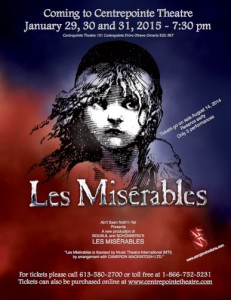The School for Lies at Algonquin College: Catriona Leger saves the evening!
Photo: Andrew Alexander Trevor Osbourne and Ryan Young.
Translating Molière is often a risky undertaking as David Whitely has shown us. His translations have usually been very good because they have captured the spirit of the original in multiple ways and he was lucky to have a professional cast directed by John P. Kelly. David Ives an award winning translator of Classical French theatre speaks of his translation of Corneille this way: “it is neither a translation nor an adaptation; it’s what I call a translaptation” (Playbill). He clearly tells us his intentions concerning Le Misanthrope in his prologue: “Screw Molière….we will do our own version”. Director Catriona Leger tells us this is a “liberal” and “lively” adaptation of the original which is a bit of an understatement but still, we recognize some of the original in the text.
